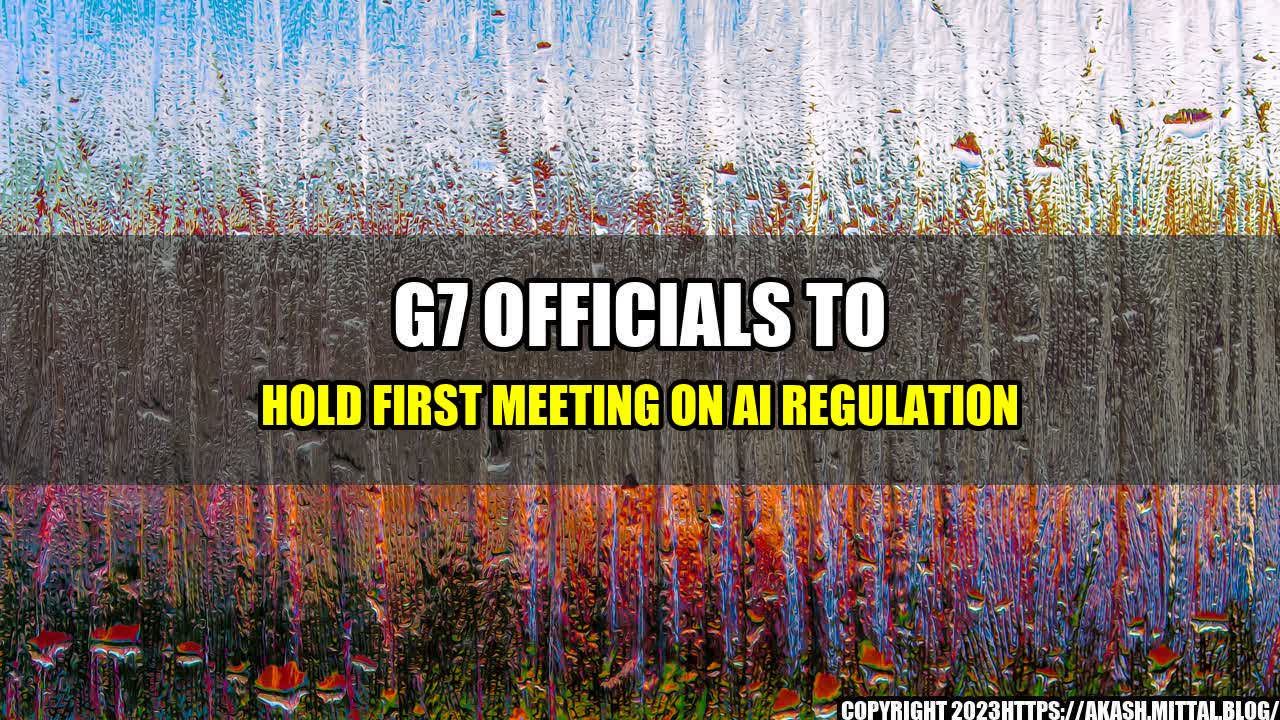Picture a world where machines can think and learn on their own, where they can make decisions that far surpass human intelligence. Sounds like the stuff of science fiction, right? But the reality is, artificial intelligence (AI) is advancing at breakneck speed, and unless we take action now to regulate its development, we may find ourselves at the mercy of machines we can no longer control.
That's why the G7 officials are set to hold a historic meeting next week to discuss the future of AI regulation. The meeting comes at a critical time, as AI technology has advanced far beyond what anyone could have predicted just a few short years ago.
According to a recent study by McKinsey, AI could contribute up to $13 trillion to the global economy by 2030. That's a staggering sum, but it's not without its risks. As AI becomes more advanced, there's a very real possibility that it could pose a serious threat to our privacy, security, and even our very way of life.
One of the most critical areas that needs to be regulated is the use of facial recognition technology. With the rise of social media and the proliferation of cameras everywhere, there's an ever-increasing amount of data available for machine learning algorithms to analyze. If left unchecked, this technology could be used to monitor our every move and erode our civil liberties.
Another area that needs to be regulated is in autonomous weapons systems. While the development of these systems has the potential to save lives by removing humans from harm's way, it also raises serious ethical and moral questions. What happens if a machine makes a mistake and takes innocent lives? Who is held responsible?
Finally, there needs to be regulation around job displacement. As machines become more intelligent, they have the potential to take over many of the tasks that humans currently perform. This could lead to massive job losses and social upheaval if not managed correctly.
So, what can we do to ensure that AI is developed in a responsible and ethical manner? The G7 officials have several recommendations:
- Collaborate: Governments, academia, and industry need to work together to develop best practices and standards for AI development.
- Transparency: Companies need to be transparent about how they're using AI and what data they're collecting.
- Education: We need to invest in education and training programs to ensure that people have the skills needed to work in an AI-driven economy.
As the development of AI continues to accelerate, it's clear that regulation is needed to ensure that it's harnessed for the greater good. By working together and taking a proactive approach, we can ensure that the future of AI is one that benefits everyone.

Curated by Team Akash.Mittal.Blog
Share on Twitter Share on LinkedIn